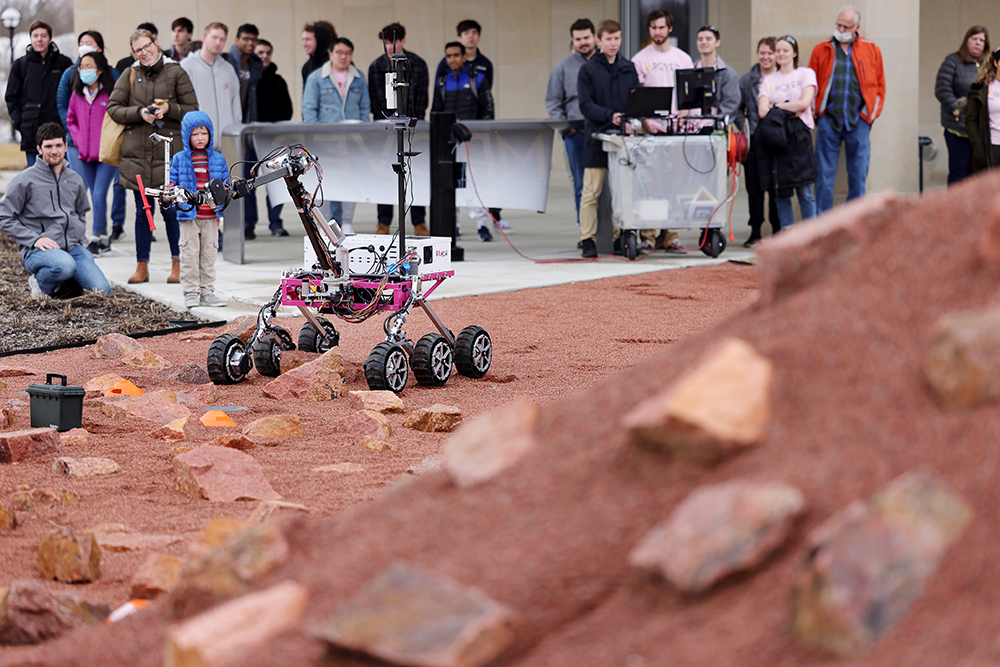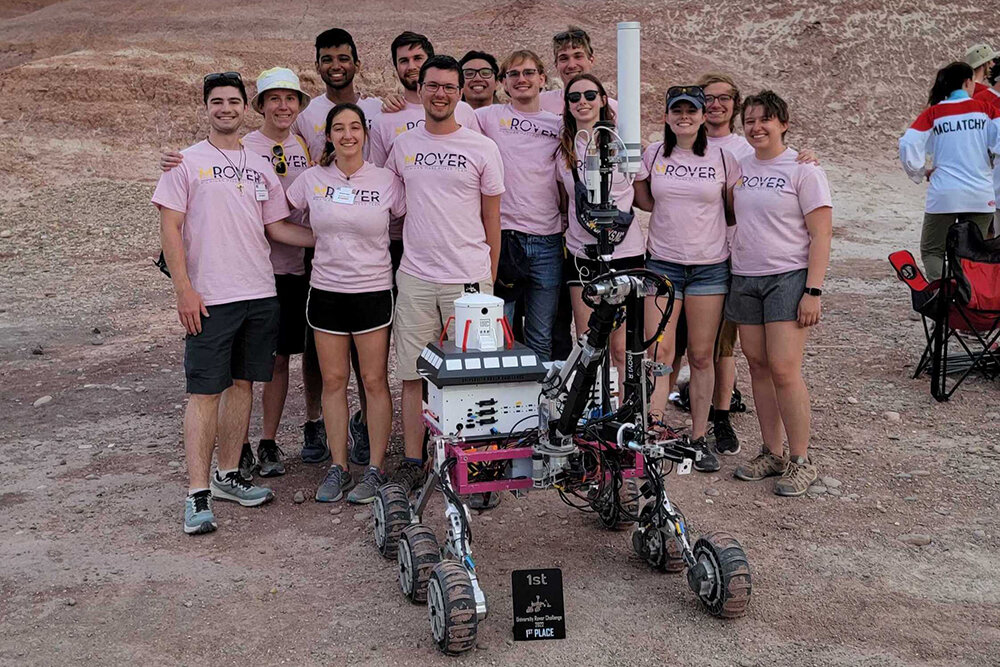
MRover crowned champions of the University Rover Challenge
From autonomously navigating rocky terrain to testing soil for signs of life, the Michigan Mars Rover team bested their competition and took first place at the international competition.

From autonomously navigating rocky terrain to testing soil for signs of life, the Michigan Mars Rover team bested their competition and took first place at the international competition.

The Michigan Mars Rover team (MRover) are the champions of the 2022 University Rover Challenge (URC), a competition where student teams from around the world design, build, and test rovers for planetary exploration. This is the first time the team has won the competition; their previous best finish was seventh place in 2019. The 2020 and 2021 URCs were cancelled due to the pandemic.
“It was definitely challenging, because almost no one on our leadership team had been to a competition before,” said ECE Master’s student Rachel Li, the MRover president. “But we prepared as best as we could, and we were really happy with how things went. We performed really, really well.”
The URC takes place over several days in June at the Mars Desert Research Station in the Utah Desert. It’s run by The Mars Society, the largest advocacy group for the exploration and settlement of Mars. The challenge features four missions:
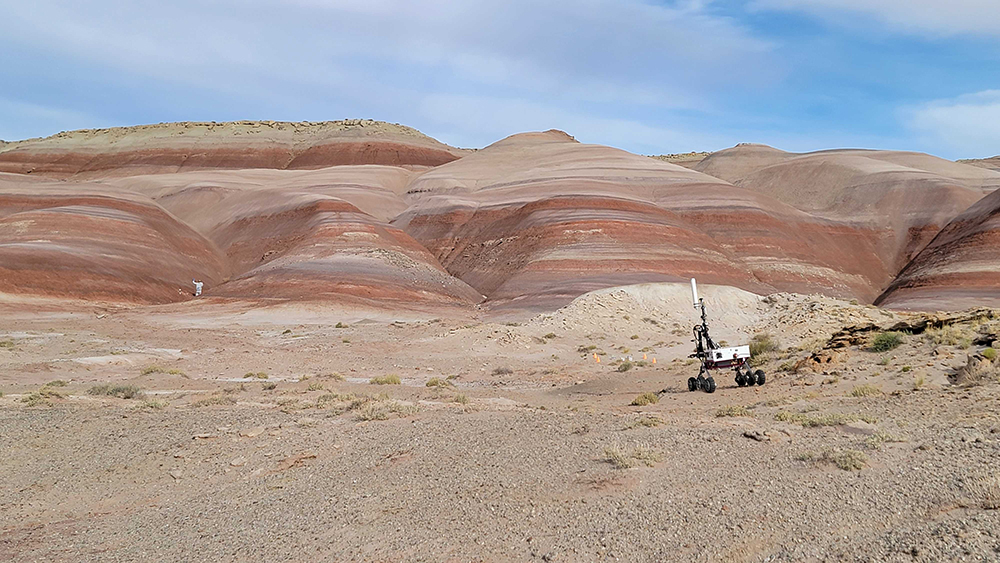
Each task is scored separately, and the final score is the sum of all points earned. MRover’s total score was 388.97 out of 500. Their highest score was for the Science mission, but they also tied for the highest score in Extreme Retrieval & Delivery.
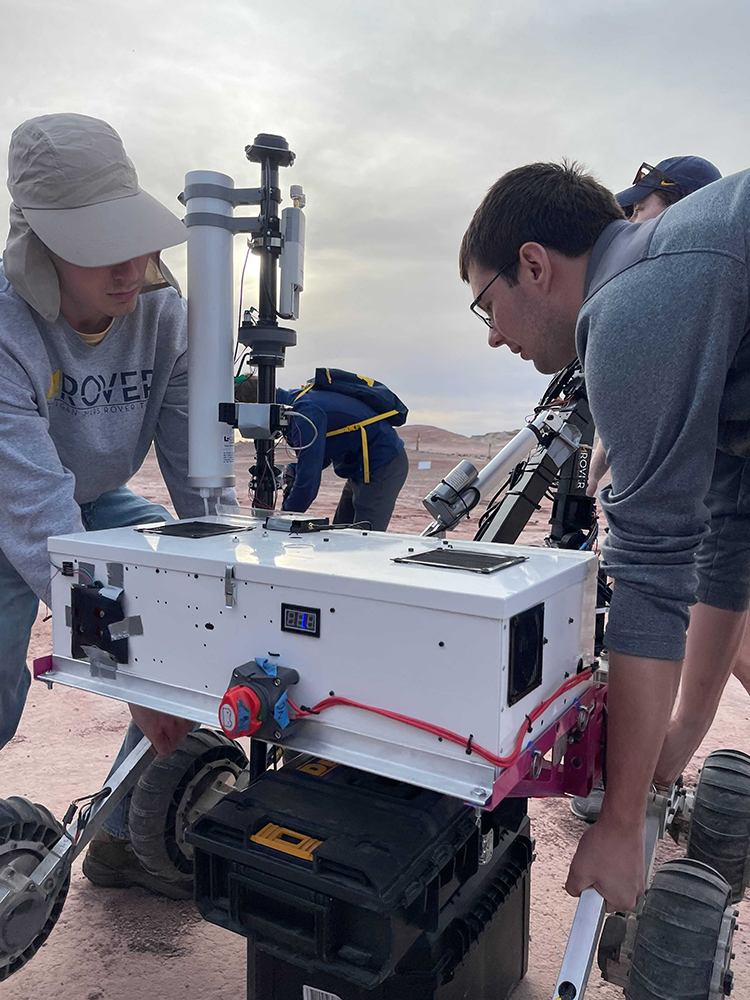
“We had been practicing so much that we were really efficient at solving problems that pop up during competition,” said Electrical Engineering undergrad Nick Cahill, the MRover Chief Engineer. “Whether it was a software issue, an electrical issue, a mechanical issue — everyone knew their role and what they were supposed to do.”
This year, each team was only allowed to bring twelve members to competition due to COVID restrictions. Many of the competing teams stay at the same motels, and everyone celebrates together after the end of competition at a campfire and cookout.
“It’s really cool to meet teams from all over the world and see how they approach the challenge,” Cahill said. “The Columbian team were right next to us, so we got to know them pretty well. It’s really fun getting to know people who have similar experiences, but who may come from different backgrounds.”
In the previous years when the pandemic shut down all competitions, the MRover team decided to focus on a complete redesign, building a brand new rover from the ground up.
“At first, it was difficult to figure out how we were going to motivate people, because our competitions kept getting cancelled,” Li said. “It was really important that we maintained our community and supported a diverse and equitable environment. Our approach became a lot more learning-focused and relationships-focused than competition-focused.”
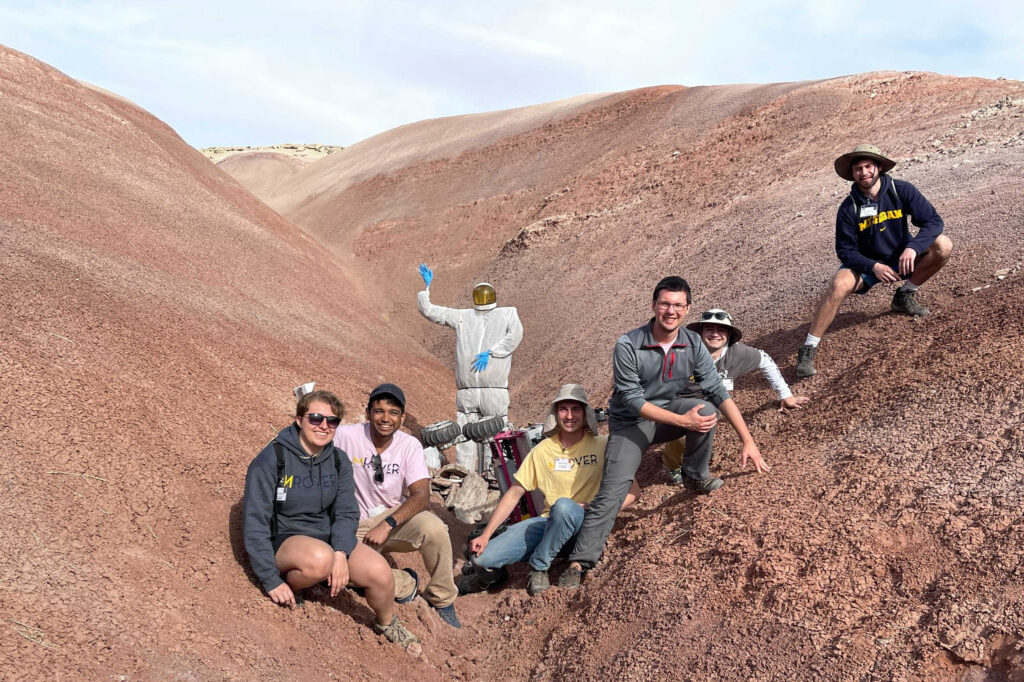
This tactic helped the team perfect and test their designs in ways they never had before, giving them a helpful edge in competition this year. For months before the URC, the team devoted themselves to a robust series of mock competitions and rigorous tests.
“We tried to make each operation as difficult as possible to stress test and fix issues,” Cahill said. “Like when we were preparing for the science mission, we crushed up green chalk so it would look like biomass, but it’s not actually a sign of life or anything.”
The team has long used the Wave Field and Baja Racing’s track to practice, but these terrains are very different from the desert where the URC is held. Now, the MRover team has access to the Mars Yard, which was included as part of the new Robotics building. While the yard was being created, the team was able to put in requests for its design, such as the grade of the hill, making it an even better testing ground. They’ve also used the Robot Playground to further challenge the rover and the drivers.
“What’s great about MRover is that you get to do something totally different every year,” said Cahill, who will be starting his Master’s in ECE at Michigan this fall. “I was constantly pushing myself and learning new skills. By the end of the year, you’ve experienced the entire process, from design all the way to the final product.”
